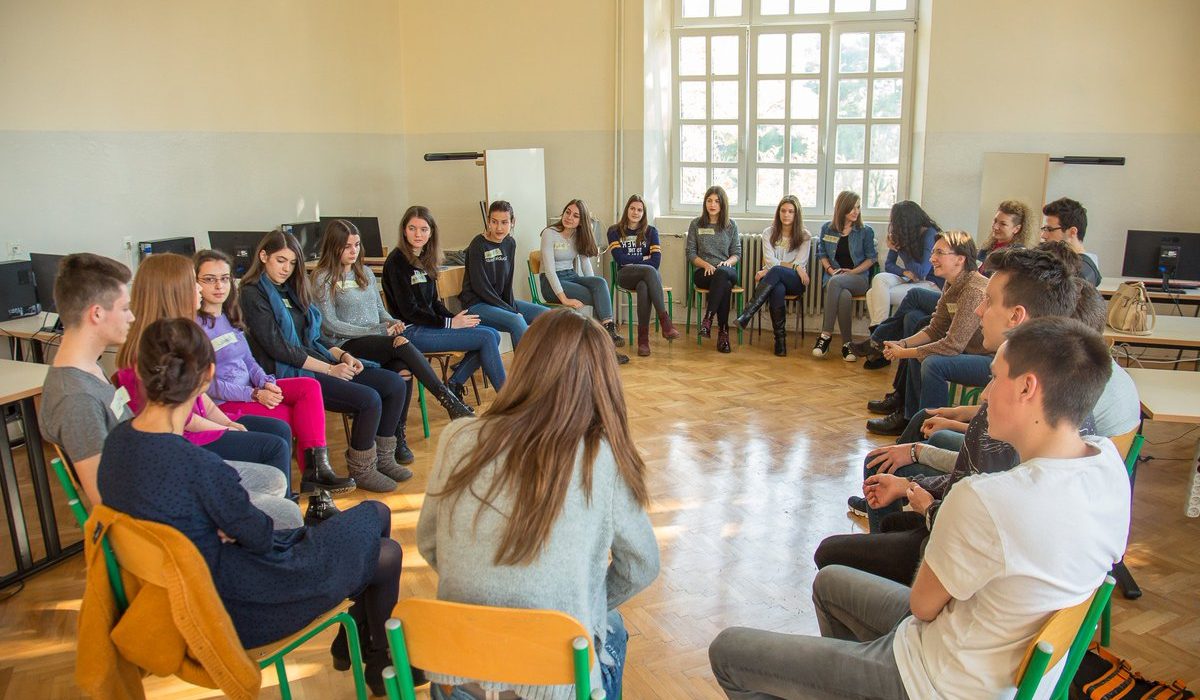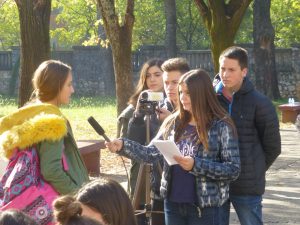In all countries participating in the Global Kids Online study, the researchers have been talking to children about their experiences of the internet. So far, the voices of children have not been represented well in key debates on children’s digital rights and there has been only sporadic attention to the views of young people. Research with children is crucial to overcoming this imbalance and can be particularly insightful for understanding better children’s online experiences. In this video, produced for Global Kids Online by the UNICEF Office of Research – Innocenti, children from South Africa talk about the online risks and opportunities that the internet affords them.
Some of our country partners have also used creative participatory methods to allow young people to express more actively their views. UNICEF Montenegro worked with Dorothea Kleine (University of Sheffield) on a project enabling youth in Montenegro to tell their stories of living in a digital world via film-making. A four-day participatory workshop was organised to train young people in making and editing digital film and acting as peer researchers and film-makers in a way that would allow them to express their views, concerns and creativity. UNICEF Montenegro also worked with the University of Montenegro, Ipsos, and children from three secondary schools to facilitate youth-run focus groups on key issues related to their internet use. The participatory research conducted by the young people was then presented at a Youth Forum on Cyberbullying as part of the #EndViolenceOnline campaign launched by Montenegro’s Government and UNICEF aiming to promote digital safety and digital literacy among young people.
In the Global Kids Online methodological guide to participatory research with children, Dorothea Kleine and colleagues discuss the benefits of this method:
Engaging children in digital photography and film allows children and young people to capture images of things that are meaningful to them, which helps adult researchers to see the world through their eyes.
Seeing young people engage with local politics via digital media and online channels makes a powerful case to the public and to policy-makers for the rights of children to have access to such digital tools and online platforms.
Another example showcasing the use of participatory methods is the project led by our Advisory board member Amanda Third (Western Sydney University and Young and Well Cooperative Research Centre) on Children’s Rights in the Digital Age: A Download from Children around the World, supported by the Institute for Culture and Society at the Western Sydney University, the Berkman Center for Internet and Society at Harvard University, and UNICEF. The project aimed to document and analyse the ways that children themselves, in different locations around the world, conceptualise and enact their rights in relation to their digital media practices.
In her methodological guide on researching the benefits and opportunities for children’s online developed for Global Kids Online, Amanda Third discusses the benefits of participatory methods:
Rather than thinking about children as objects to be studied, we might think of children as co-researchers who are involved in all phases of a research project, from defining the issues to be investigated and designing the methods that will be used to elicit children’s perspectives, through to the analysis, interpretation and communication of the results. Approaching the task of documenting the benefits and opportunities of online participation in this way enables children’s insights and experiences to shape data gathering and recommendations about how to enhance their opportunities in the digital age.
Find out more about participatory research on children’s opportunities online:
Method Guide 6: Researching the benefits and opportunities for children online
Method Guide 8: Participatory methods: Engaging children’s voices and experiences in research
Further methodological guidance on researching children’s online risks and opportunities: Global Kids Online Method guides
Council of Europe’s child participation resources
Post author: Mariya Stoilova
You can sign up to receive the latest research news from Global Kids Online by email. Please forward this message to anyone you think may be interested.









